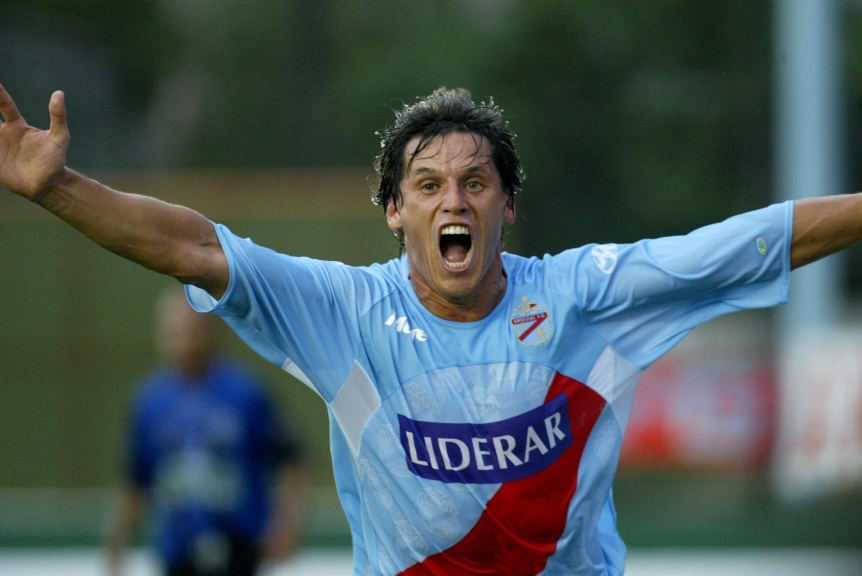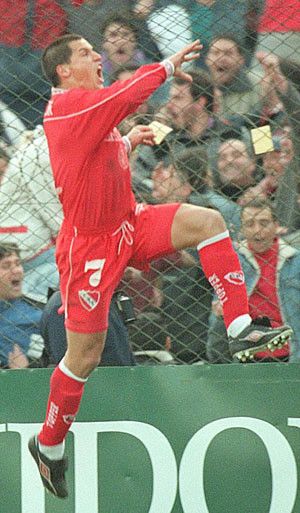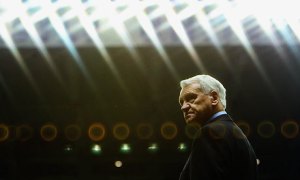Jose Luis Calderon was a consistent goalscorer but an argument with the now famous Marcelo Bielsa put an end to his international career.
The striker played for Argentina during the 1997 Copa America but a fall out with Bielsa meant he was never picked again for his national side despite the fact that he was a consistent goalscorer all his career.
With over 600 games and over 200 league goals and a career that lasted from 1989 to 2010 you would expect that he would be a name that was a little more well known in the footballing world. His career started at Cambaceres where he was an instant hit as soon as he broke into their first team, scoring 43 times in just 83 games before a move to his boyhood club Estudiantes.

In his career he would play for Estudiantes three times, and also have three spells at Independiente and Arsenal de Sarandi twice. His record during these spells were mpstly succesful and for the majority he hit a goal on average every two games. Despite his goals he did not get much success on the trophy front until 2006 when he won the Apertura with Estudiantes and followed this up with the Copa Sudamericana with Arsenal.

His third spell for Estudiantes was the least he played as most of his appearances were from the bench, however he did manage to be part of the squad that won the 2009 Copa Libertadores. This seemed like the perfect time to retire and on November 25th 2009 he announced his retirement at the age of 39.
However, this would not be the end as he was convinced to come out of retirement by Argentinos coach Claudio Borghi. He proved his skills once again, by playing a key part in the their 2010 Clausura championship win. He only scored three goals in 19 games but it was his all round play and experience that really helped the side. In the penultimate game of the season he set up a goal in the 93rd minute to win the match against former side Independiente.

At the end of his contract he left the club and at the age of nearly 40 he decided to play one last game for first club Cambaceres and scored a penalty kick to complete his career.
He did have a brief spell in Europe, following in the footsteps of Diego Maradona, playing for Italian side Napoli. But this only lasted six games and unfortunately he did not manage a goal.
Calderon was a fantastic finisher and his compilation videos on Youtube are definitely worth a look for anyone that particularly enjoys football from the 1990’s.
The final word can go to the man himself, who said on his final game in tears. “I have the gratitude for all the people who supported me. It’s a shame that my legs tell me enough, but I’m going calm because I closed a cycle in the same place where I started.”










